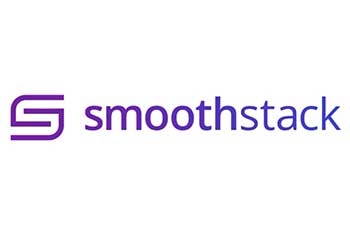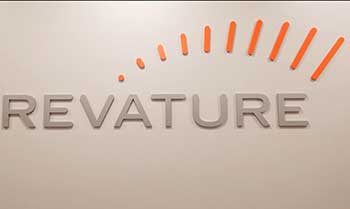Coding bootcamps have become an increasingly popular way for aspiring developers to quickly gain the skills needed to land a job in tech. Two well-known bootcamp providers are Smoothstack and Revature, which take different approaches to training.
This article examines the key differences between Smoothstack and Revature bootcamps to help you determine which may be a better fit.
A Brief Comparison Table
| Category | Smoothstack | Revature |
| Training Model | Traditional tuition-based bootcamp | Employer-sponsored training program |
| Duration | 4-6 months | 10-12 weeks |
| Post-Grad Obligation | None | 2 year work commitment |
| Job Guarantee | No, career support only | Yes, by contract |
| Curriculum Focus | In-depth Java/J2EE | Java, C#, Salesforce |
| Cost | $12k-$15k tuition or ISA | No tuition, work commitment repayment |
| Ideal For | Those wanting thorough Java training and flexible career options after | Those wanting fast free training and guaranteed job, open to work obligation |
Smoothstack Overview
Founded in 2011, Smoothstack is an established coding bootcamp provider that focuses on Java development training. Their bootcamps are designed to be an intensive 16-24-week program that promises to take students from beginner to job-ready.
Here are some key things to know about Smoothstack:

- Training Focus: Smoothstack bootcamps concentrate on Java development, covering topics like Java SE, Java EE, Spring, Hibernate, SQL, CI/CD, AWS, and more. The goal is to equip students with core skills for Java/J2EE web development roles.
- Program Length: Smoothstack bootcamps are 16-24 weeks long. The varying duration depends on prior experience – true beginners take the full 24 weeks.
- Delivery Method: Training is delivered via live online instructor-led sessions. Students participate remotely in real-time interactive lectures and hands-on labs.
- Cost: Smoothstack used to charge tuition around $12,500 USD, but they have recently switched to an income share agreement model. Now students can attend for free upfront and pay back a percentage of salary after getting hired.
- Job Assistance: Career coaching and recruiter partnerships are offered to help students land jobs after graduation. But a job is not guaranteed.
Overall, Smoothstack aims to provide comprehensive Java training in a structured online setting. But it requires an intensive 4-6-month full-time commitment.
Revature Overview
Revature takes a different approach than traditional coding bootcamps.
Here are some core aspects of their model:

- Training Model: Revature does not charge tuition upfront. Instead, students sign an employment contract to work for Revature for 2 years after training. During this time, Revature assigns graduates as consultants to client companies.
- Program Length: Revature bootcamps run 10-12 weeks on average. Training is also done via online instructor-led classes.
- Curriculum: Revature bootcamps cover Java, .NET/C#, or Salesforce. The focus is on providing students with skills immediately valued by their corporate clients.
- Job Placement: Students are guaranteed a full-time job after graduating as per their employment contract. Revature directly places them as consultants on projects with clients.
In summary, Revature operates more like a staffing and recruiting agency that provides intensive technical training. There is no tuition, but graduates make a 2-year work commitment in exchange.
Key Differences
Given the high-level overview, what are some of the key differences between Smoothstack and Revature?
- Business Model: Smoothstack is a traditional coding bootcamp where students pay tuition. Revature is an employer-paid training program that recruits and places graduates with clients.
- Duration: Smoothstack bootcamps are 4-6 months long for beginners, while Revature bootcamps are 10-12 weeks typically. Smoothstack spends more time covering basics for true beginners.
- Post-Grad Obligation: Smoothstack students have no obligation after graduating. Revature students must work 2 years as consultants at assigned client sites.
- Job Guarantee: Smoothstack does not guarantee jobs, only career support. Revature guarantees jobs for 2 years by contract.
- Curriculum: Smoothstack concentrates on Java. Revature offers Java, .NET/C#, or Salesforce tracks. Smoothstack goes into Java topics in more depth.
- Cost: Smoothstack charges tuition or takes an income share agreement. Revature training is free but repayment is through the multi-year work commitment.
For those desiring a thorough Java education with flexible career options after, Smoothstack offers advantages. But Revature allows gaining skills without tuition in exchange for a guaranteed job placement.
Also Read: Choose Between Field Nation And Work Market.
Smoothstack Pros And Cons
Let’s explore the key pros and cons of choosing Smoothstack for coding bootcamp training:
Pros
- Established Reputation: As a pioneering bootcamp running for 10+ years, Smoothstack has an established reputation and proven track record. Many alumni successfully transition to software engineering roles.
- Comprehensive Java Training: With longer 4-6 month programs, Smoothstack provides in-depth Java instruction superior to Revature’s shorter courses. Graduates gain broader capabilities.
- Flexible Career Options: Smoothstack students can work anywhere after graduating and are not obligated to the bootcamp itself as an employer. This provides more flexibility.
- ISAs Available: Smoothstack now offers income share agreements for cost-conscious applicants. ISAs allow attending tuition-free in exchange for paying a percentage of future salary back.
Cons
- Significant Time Commitment: Smoothstack requires full-time effort for 4-6 months, making it difficult to work concurrently. This can create financial challenges for some students.
- No Guaranteed Job: Unlike Revature, Smoothstack does not guarantee a job. But they do provide career support to help students get hired after completion.
- Upfront Tuition Costs: The standard Smoothstack model still requires paying tuition upfront ranging from $12k-$15k. ISAs help reduce this barrier for entry.
So in summary, Smoothstack offers deep Java immersion but requires more time and tuition investment upfront without guaranteed employment after graduation.
Also watch this video!
Revature Pros And Cons
What are the major advantages and downsides to picking Revature?
Pros
- No Upfront Costs: Revature training is free upfront and students repay cost through the multi-year work commitment after completion. This removes tuition barriers.
- Faster Training Period: Revature bootcamps take 10-12 weeks on average. This allows students to gain skills faster than longer Smoothstack programs.
- Guaranteed Job Placement: By contract, Revature guarantees graduates a full-time salaried job upon program completion, eliminating job search stress.
- Learn In-Demand Skills: Revature teaches skills like Java, C#, and Salesforce that are in high industry demand, making it easier to get hired after the two year commitment.
Cons
- Post-Graduation Work Obligation: Revature graduates must work 2 years with assigned client companies, limiting initial career options compared to Smoothstack.
- Potentially Lower Salaries: Salaries earned during the 2 year Revature commitment may be lower than open market rates. But higher pay is possible after fulfilling the contract.
- Less Comprehensive Training: With only 10-12 weeks of training, Revature covers topics at a faster pace and less depth than Smoothstack’s longer programs.
- Limited Tech Stacks: Revature focuses only on Java, C#, and Salesforce. Smoothstack specializes deeper in Java/J2EE across broader complementary technologies.
So in return for a faster free training path and guaranteed job, Revature requires a multi-year work commitment at potentially lower initial compensation.
Smoothstack Vs. Revature: Which Is Better?
So which coding bootcamp is better – Smoothstack or Revature? The answer depends on your circumstances and goals.
For those who want a thorough Java/J2EE education with flexible career options after, Smoothstack is likely the better choice, despite the longer timeframe and tuition costs. The depth of training and lack of any work obligation after graduation is advantageous.
On the other hand, if you prioritize gaining skills quickly at no upfront cost and want employment guaranteed immediately after graduating, Revature’s model may suit you better. The tradeoff is less topics breadth and being obligated to work with Revature clients for two years.
Ultimately there is no universal “better” option – it depends on alignment with your individual needs and preferences. Assess your own situations carefully to determine if the benefits of either Smoothstack or Revature make more logical sense for you.
Also Read: Comparison Between Skillstorm And Revature.
Frequently Asked Questions (FAQ)
Yes, Smoothstack is a legitimate established coding bootcamp company founded in 2011 and headquartered in Atlanta, Georgia. They have trained thousands of students in Java development skills over the last decade.
By all accounts, Smoothstack has built a strong reputation within the coding bootcamp industry. Students generally report positive experiences and benefitting from the rigorous Java training programs.
For alternatives to Revature’s unique employer-sponsored training model, traditional tuition-based coding bootcamps like Smoothstack offer a more standard pay-to-attend approach without any long-term work obligations after.
Smoothstack’s coding challenge to get accepted into their bootcamp is considered quite difficult relative to some other bootcamps. It takes diligence to adequately prepare through self-study beforehand to pass the assessments.
Conclusion
In closing, both Smoothstack and Revature offer viable ways to pivot into a software development career. Smoothstack provides in-depth Java mastery, while Revature enables fast-tracking skills at no upfront cost.
Carefully weigh the tradeoffs to pick the bootcamp that best aligns with your scenario. With dedication and hard work, you can succeed as a Java developer no matter which path you choose.
